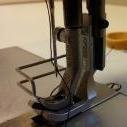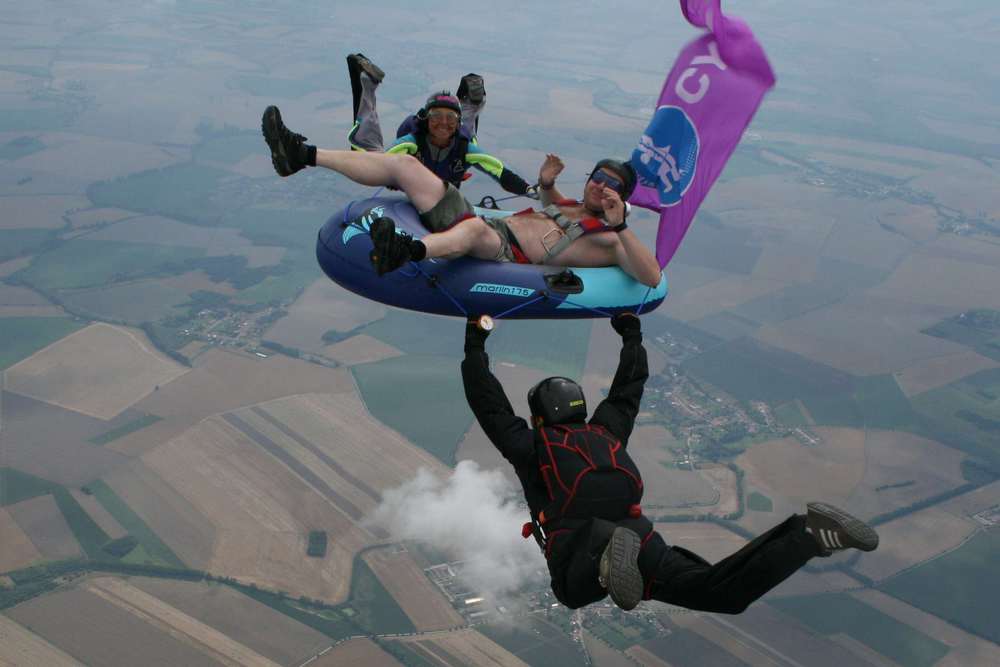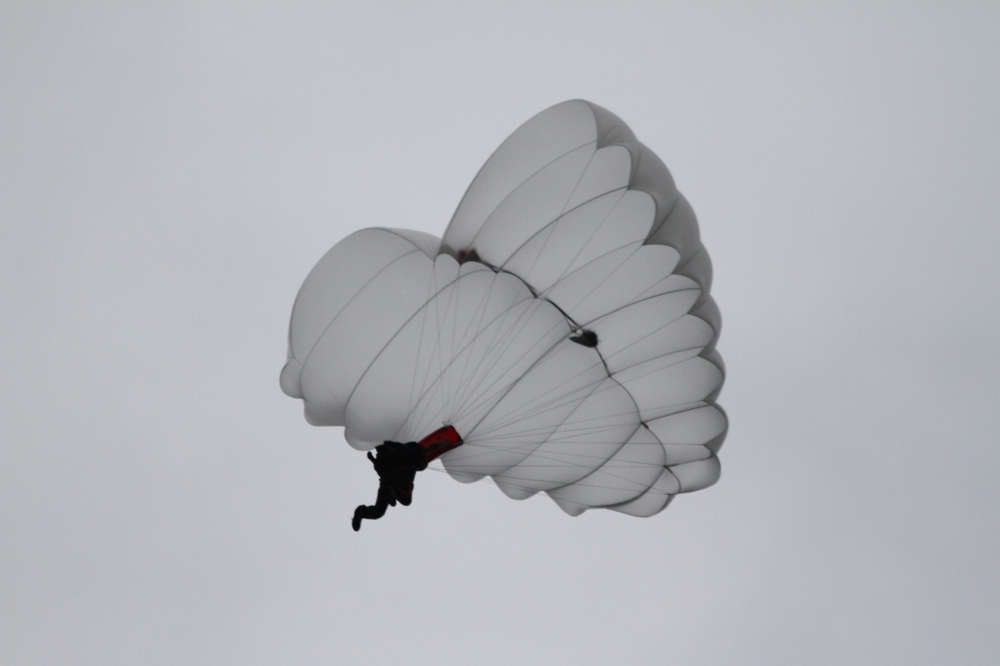-
Content
808 -
Joined
-
Last visited
-
Days Won
1 -
Feedback
0%
Deyan last won the day on January 23 2024
Deyan had the most liked content!
Community Reputation
36 NeutralGear
-
Main Canopy Size
139
-
Reserve Canopy Size
126
-
AAD
Cypres
Jump Profile
-
Home DZ
PCEH
-
License
D
-
License Number
322
-
Licensing Organization
BNAK
-
Number of Jumps
999
-
Tunnel Hours
10
-
Years in Sport
20
-
Freefall Photographer
No
Ratings and Rigging
-
USPA Coach
No
-
Pro Rating
No
-
Wingsuit Instructor
No
-
Rigging Back
Master Rigger
-
Rigging Chest
Master Rigger
-
Rigging Seat
Master Rigger
-
Rigging Lap
Master Rigger
Recent Profile Visitors
3,832 profile views
-
PdF is pretty much out of business in regards to the sport gear. The 10 years since they've closed doors have already passed, so by law, they no longer have to provide service/spare parts. If your Techno 155 is past 40 repacks, you can try and find a rigger who has permeability tester and is willing to "burn his/her hands" inspecting it. The reason I'm saying that is that to my knowledge PdF has never published the permeability testing protocol. Without it, the person doing the inspection will open him/herself for liability should something goes wrong with that reserve. FYI, the permeability limit set by PdF is 5 CFM.
-
You are welcome! What I forgot to mention is that the average jumper spends 5-7 years in the sport which means that that rig will have 2-4 owners over its lifetime.
-
OK Jerry, I'll give you a very broad breakdown on what I would expect. Today I closed my 6000th reserve, so I consider myself experienced enough to have an opinion based on experience. Let's have a look at a brand new H/C system, 9 cell ZP main, and a PDR. The system is going to be used in Central/Northern Europe and it won't be abused with bad landings, packed outside, jumped next to the sea etc. around 200 jumps the kill line will need replacing 400-600 jumps a reline is expected. At the same time, a new PC and risers might be needed and maybe the chest strap will need to be replaced 700-800 jumps a new Dbag will probably be needed and maybe new leg straps and kill line. 1000-1200 jumps second lineset and again maybe PC, risers and chest strap 1500-1600 jumps, the main will probably be done at this point and the overall condition of the harness will be to the point where the MLW and/or reserve risers will need replacing too. If the harness is replaced, the cycle can continue. About 3000-4000 jumps is where the container will be worn out as well. And at that point you can sell it to a CReW jumper and they'll happily double that number! Just joking guys.... kinda. So without too much maintenance, I'd say 1500-1600 jumps is the useful life of a rig. 80-100 jumps a year for the average jumper equals 15-20 years. In those 15-20 years if you pack the reserve every 6 months on the date, and have 2-3 reserve rides, you'll be very close to the reserve needing factory check, so that sums it up I guess. I hope that answers you question.
-
Although there are a few countries in Europe with that 20 years lifetime of the gear, majorly of countries doesn't have limitations. And because EASA doesn't want regulate skydiving gear (and rightfully so) every country has it's own rules. So pretty much everything you say after "the Europeans" in regards to skydiving gear, will be incorrect.
-

Optimum 113 DOM april 2008 maximum weight ?
Deyan replied to eric.fradet's topic in Gear and Rigging
Just so I'm clear, my idea is to get rid of it and not give it in the hands of some other non government body to be regulated . Like PIA for example. That's gonna be equally bad or even worse! -
In the original state that came from the manufacturer?! Probably no more than 500 jumps. After you start replacing stuff, I've seen one with 5500 jumps in 15 years! And to be completely honest, probably the TSO label was the only part that was made at the factory :) ..... Just like the broom from the video above
-
Rob, What he is referring to is the comfort padding a.k.a Spacer foam is falling apart. I've seen it a few times only on Vortex rigs. Removing that will be equal to rebuilding the rig, which is economically not worth doing. To the OP, there's nothing you can do. Jump it as it is and wash your suit frequently, or burn it. It's just a Vortex.
-
IMO we should get rid of the TSO altogether. Since you can play games to first get it and then maintain it, what's the purpose of it, other than keeping the door closed for startups with a low budget? It seems a bit of an useless exercise. We will be better off without it. More players on the field will bring innovation faster and at lower cost. Just like the BASE industry. And IMO, the limits in the manual should be the correct ones. The question is, should the manufacturer recall the products with the wrong labels?!
-
If the Speed 2000 in question is made from the PN1 a.k.a the normal fabric, it will fit. If it's made from the V3 a.k.a low packing volume fabric , it will be too soft.
-
Two or so years ago I made a joke about the delivery times of UPT. I told a new jumper just after his AFF who wanted to buy his first rig, and he really wanted a Vector: " Go with V308 and PD126, you'll thank me later" He laughed.... Then he went with another brand. 60 + weeks later, he already had done around 400 jumps on his already "old rig" and was looking to downsize to 135 which is the tight fit for V308. We both laughed about the absurdity of their delivery times. If you finish AFF today, you can get a rig with PDR 113 and Valkyrie 75. By the time your rig is ready, you will be ready to jump that combo too
-
I have so many questions.... Why is weight important to you? For BASE jumping I kinda understand since you will have to hike with it (sometimes for hours). For skydiving though...?! If you want to cut weight from you future rig, forget about stuff like spacer foam, hip/chest rings, Cordura and you'll probably save about 6-700 grams. If the weight is the only factor you are looking at, the undisputed world champion of light weight rigs is a Power Racer. I believe the smallest I ever saw was 275/275 and it was like 6.5 kg with canopies...
-
I was referring to Vigil's PSB-8 Vigil R&D has confirmed that the electronics worked correctly and fired the cutter, but because of the absence of the knife blade, the closing loop could not be cut.
-
If it even had a blade...
-
IMO, it's a combination between the cap size, the side flaps being sewn too far in the corner, the pin cover stiffener too thick and tucked too far in. I've measured 70 mm being tucked in on one of the NexGen sizes. It's ridiculous! Being "freefly friendly" is important, but "reserve deployment friendly" is importanter. Pardon my French Interesting fact is that Aerodyne has 2 cap size RPCs (I believe 5 and 6 inches) and 2 types of cap shapes (flat one and concave), but unlike UPT they haven't published (to my knowledge) a guide which cap size goes into which container size.
-
Even if they were "full fit", but inside the allowed sizes, that's not supposed to happen.I know the rigger who packed it and I'm willing to bet that the canopies are the correct size, the loop was the correct length and treated with silicon. Now, you can say that the picture doesn't represent "a real life scenario" because the person on the picture doesn't wear the legstraps. To which I would answer, I'll never jump a rig where the reserve deployment depends on how tight you have your legstraps.





